Professional Hazards: Serialized
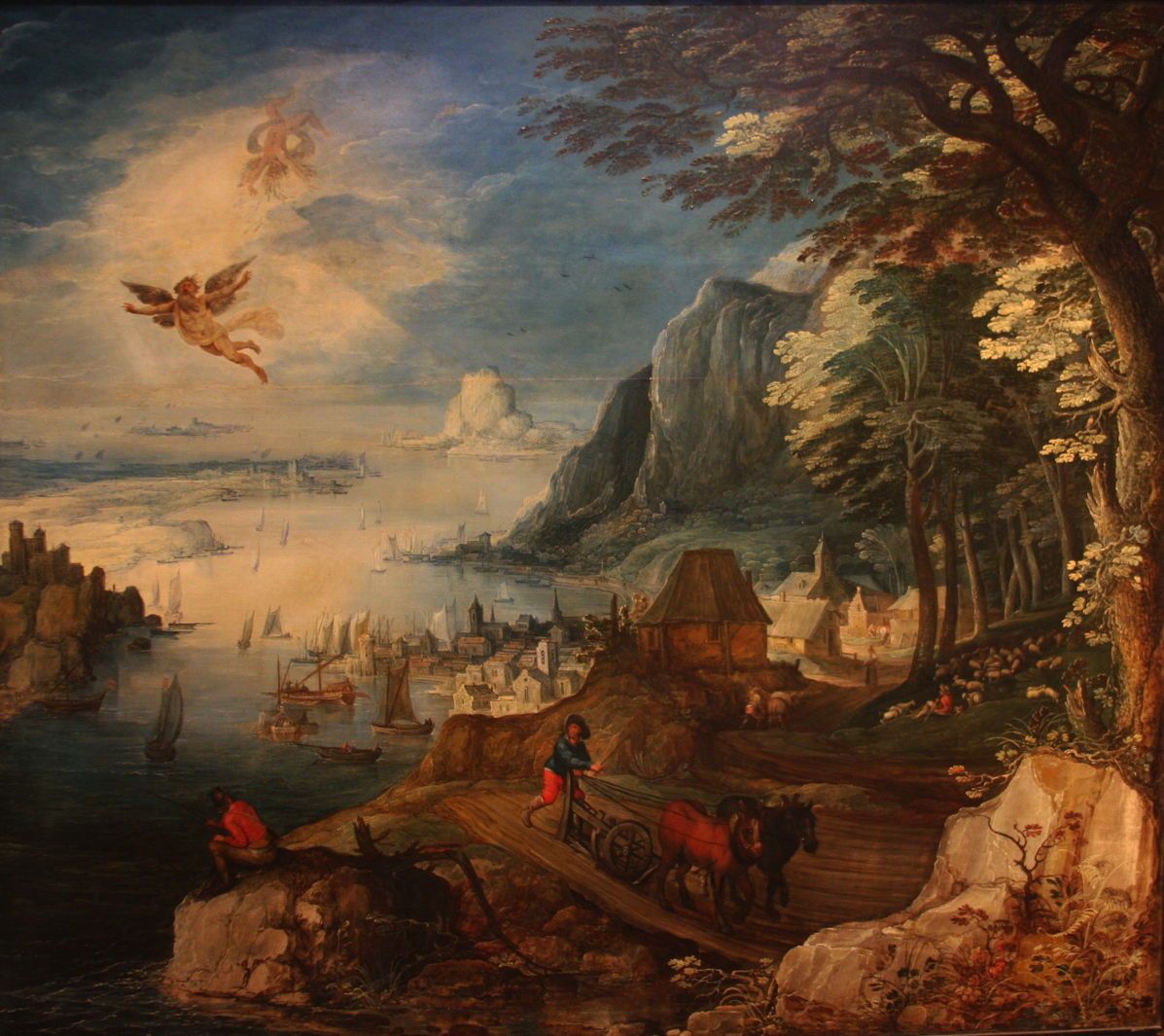
Rewriting History: The Intricate Dance of Media Technology and Liberal Ideals
*This is a serialized portion of Professional Hazards - Coming soon*
INTRODUCTION:
This book comes out of sheer personal necessity.
As a lover of words, politics, and good government in addition to being born in the year of our lord 2023; it is a confusing time to be alive. We are living in an age of technological change that is shifting the social and political landscape in rapid and seemingly increasing increments.
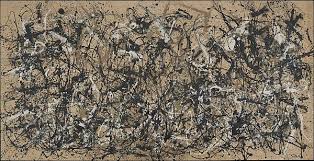
The institutions, laws, ideas, narratives, and conversations around the current paradigm of media and the underlying technology and economic models are no longer effectively keeping up. This book will attempt to update the conversation and make some educated guesses about what the future will look like.
This book will be written in a primer like fashion, so as to minimize the academic work that would otherwise bog down a prescient and time sensitive project such as this. I will try to avoid the common pitfalls of academic writing that leads it to become ossified in face of rapidly developing changes.
However, as nothing is new under the sun (at least not yet), this book is also predominantly a work of historical analysis, and only at the end will predictions be made about the future. The meta-historical trend of technological revolution promulgating massive social change is replete throughout human history.
The focus will be constrained to tracing political liberalism in its nascent form and the technology that facilitates such a political philosophy (free press and the means by which to pursue that) through approximately the last three hundred years; from the twin revolutions of the American and French, into modern American political history – the 1970s or the peak of newspaper journalism.
The particulars of the politics, revolutions, technology, and economic models and some of the prominent players of certain time periods will be the means by which we will attempt to find answers for the future.
The central aim is to answer the question of how to promote and evolve a classically liberal society in the modern world. The prerequisite for a free society is an educated citizenry, requisite for such a citizenry is a robust press, a free press. However, the press, the fourth estate, is not a charity organization (most often) and so the economic incentives, no doubt, are instrumental in what the fourth estate publishes.
As we will see, the pursuit of truth or lack thereof is often deeply tied to the economic system undergirding such an enterprise. In other words, it is critical to a free press (and thus a liberal and open society) to be financially independent from the powers that be in order to effectively critique and address major political issues.
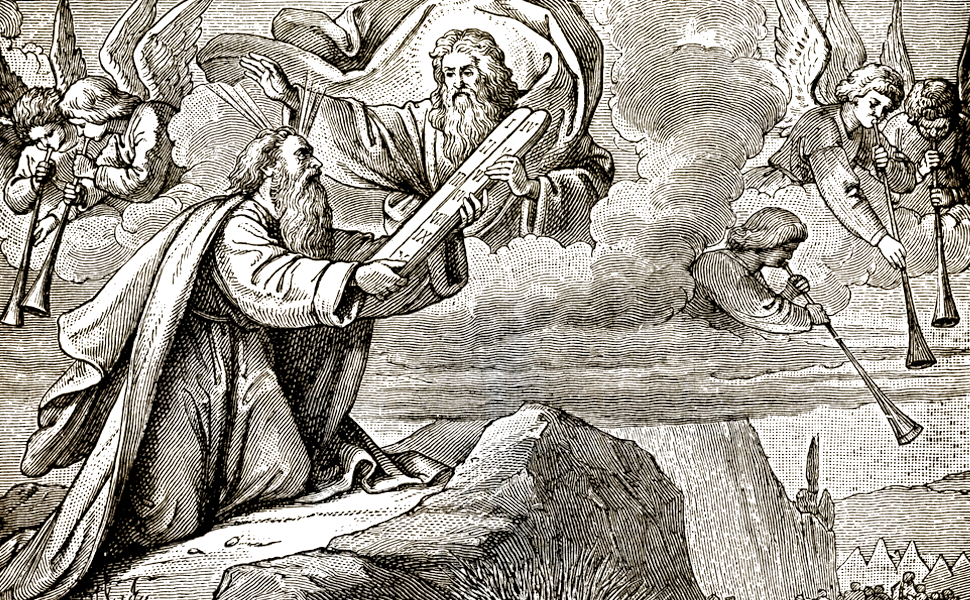
The fundamental fact is that governments, for the most part, have been despotic t one degree or another throughout human history. It is only recently that political liberalism has come into vogue as the preeminent form of government in the western world, allied with the most powerful military and economic might.
However there are many undermining phenomena to this status quo that do not, in any way, guarantee the further expansion of political liberalism and human flourishing. In fact in the past decades, political liberalism seems to be taking severe body shots to the promise of its continued survival, let alone thriving.
This book will attempt to give practical answers to this fundamental and harrowing problem. With the nightmares of the 20th century only just in the rear mirror and the potential pitfalls of AGI and digital as well as physical totalitarian governments coming down the turnpike, it is pivotal to humanity that we individually and collectively get our acts together.
I hope this book will aid in that in some small way.
POLITICS
“The end of democracy is freedom; of oligarchy, wealth; of aristocracy the maintenance of education and national institutions, of tyranny, the protection of the tyrant.”
- Aristotle Bk. II of Politics
It is commonly observable that governments come in various forms; contemporaneously and have been so throughout history. Aristotle points to Aristocracy, Dictatorship, Oligarchy & Democracy being observable in ancient Greece. These hold true today, as well as other forms of government’s that have manifested since, such as Theocracies and Republics.
If you’re a citizen of a western style democracy or republic, congratulations; you live in one of the freest most prosperous societies ever in human history. This isn’t simple cheerleading of modern regimes. Simply because society is the way it is, likely since you were born, does not mean that it is guaranteed to remain this way. As we’ve already mentioned, there’s a lot going on that is undermining our current political reality. Yet, contrasting where we’re at with most of human societies, we’re in a pretty good spot.
Francis Fukuyama famously claimed in 1989 that political liberalism had come to permanent zenith with the end of history, an “unabashed victory for economic and politic liberalism.”.
However, there is one glaring issue. The western world has seen some of the highest death tolls perpetrated in the most grotesque and evil manners in history due to regimes that are “post-liberal” – the Fascist and Communist regimes of Europe through the mid-20thcentury.
Not including the allied powers of France, Great Britain and America during world war two, it is estimated that roughly 52.5 million people (military and civilian personnel) died in and around the time of world war two under the regimes of Stalin, Hitler and Hirohito.
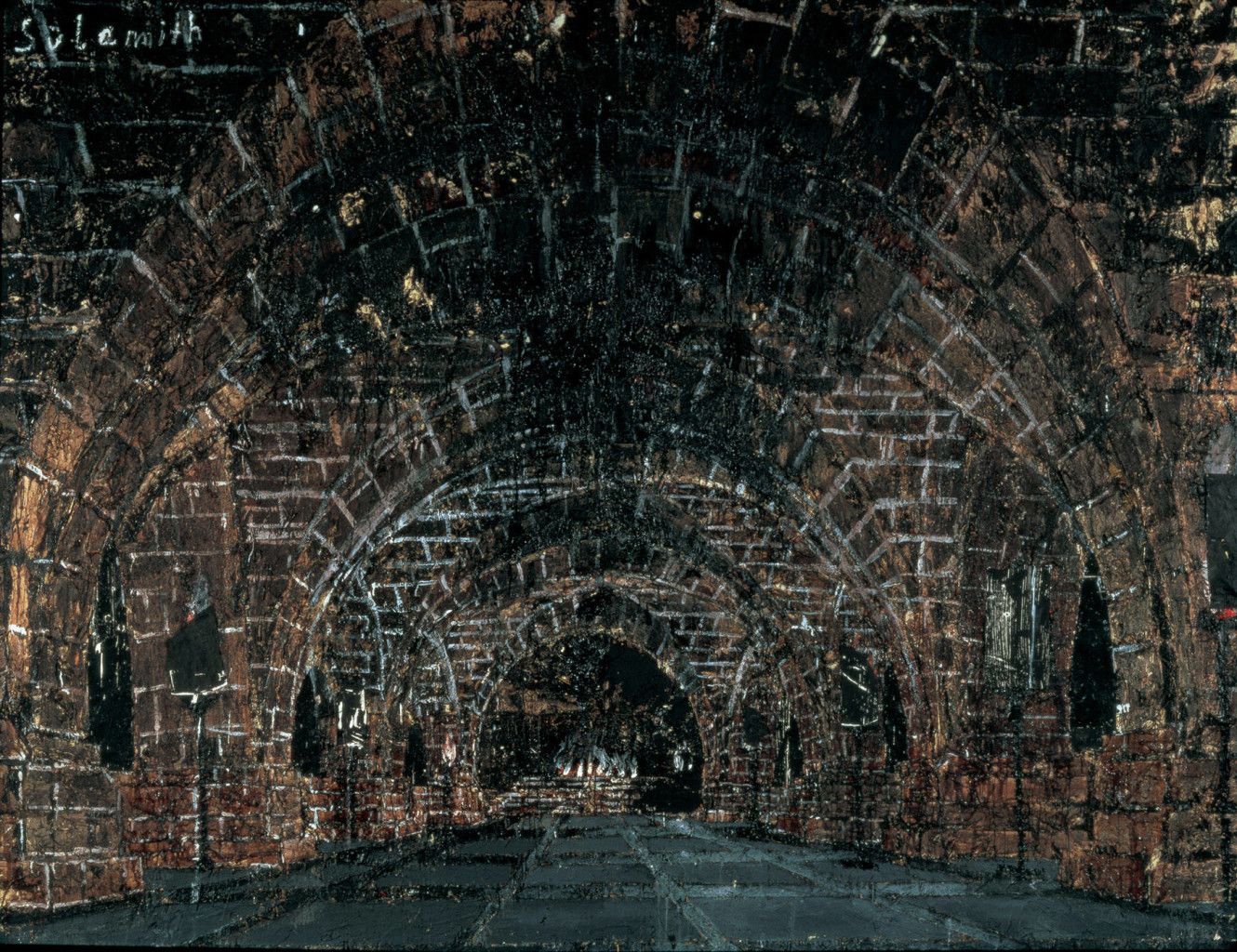
Without quibbling about the exact number, my point is that politics in the western world could certainly due with some improvement. The death totals are the dull, brutal end of the knife of totalitarianism that includes numerous other injustices, first and foremost of which is the erosion of a free press. All these evil regimes were ruthlessly effective in their adoption of state propaganda apparatuses. The antidote to totalitarianism is a rigorously virile free press. Without that component a society is doomed to succumb to the poison gas cloud of propaganda, which gives a murderous regime free hand to go about it’s business of committing heinous acts.
It thus stands to reason that the questions this book raise are paramount to a free, just and good society. Or free, just and good politics. The practical manifestation of these principles is best found in a liberal democratic republic. It takes a legion of intelligentsia to maintain this political form – lawyers, doctors, priests, businessmen, judges, bureaucrats, professors, teachers, journalists, artists, etc.
Politics is, by my own definition: the manifestation of a society’s moral, economic, spiritual, religious, cultural and historical beliefs and practices mediated through a charter of government and subsequent explicit laws.
While all governments have blood on their hands, some more so than others, humans cannot live outside social and therefor political conditions. We are in fact evolved to do so. Anthropologists estimate that in the average murder rate of stateless societies is approximately 500 : 100,000, or 100 times the current US murder rate, or 1,000 times the current Norwegian murder rate. There is no escape back to Eden, as John Locke said, “there is no freedom without law” and so goes with these statistics any hope of a lawless, stateless society. It is therefore paramount to go about establishing the best form of government, which is a perennial, everyday undertaking.
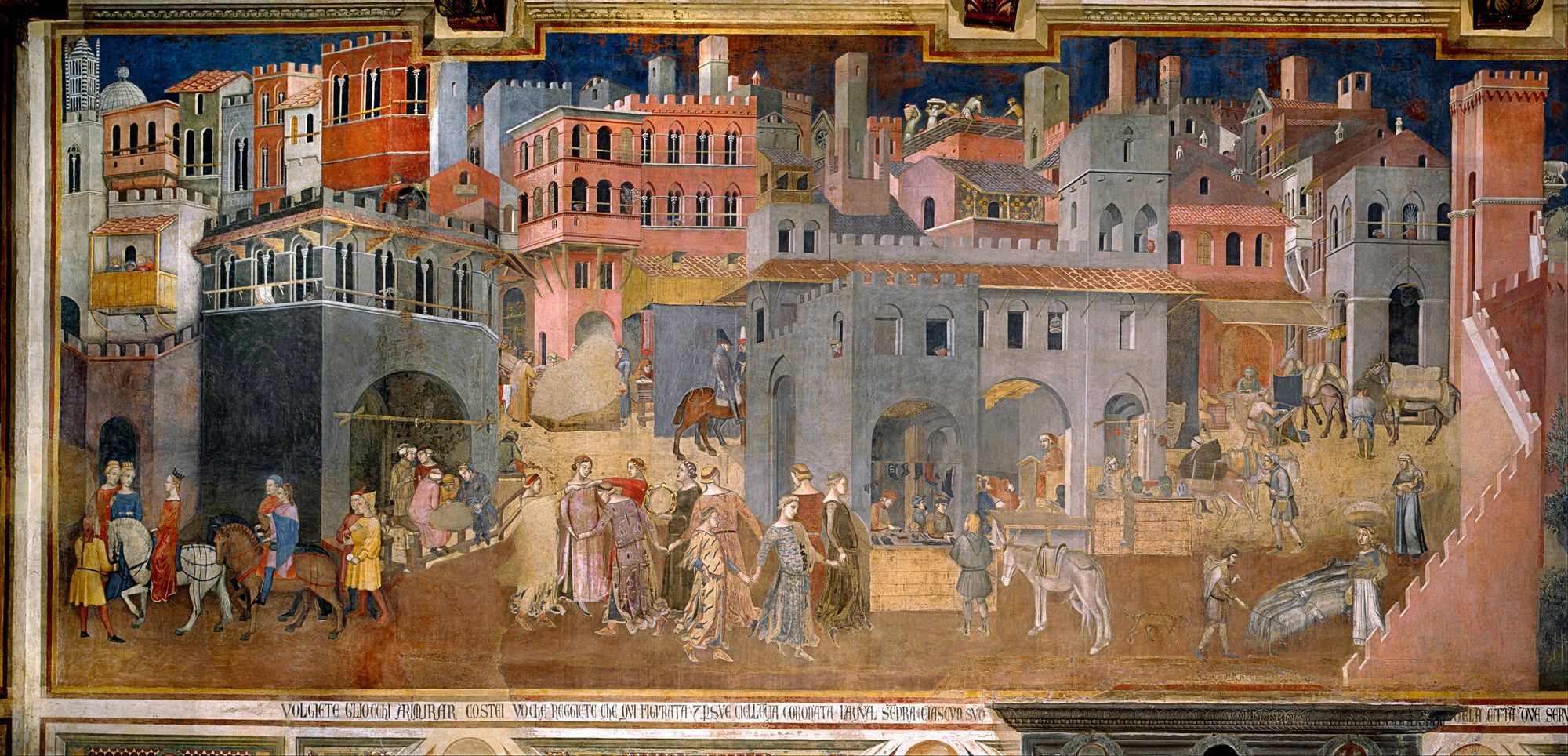
The two key questions of any government are:
1. What’re the principles so fundamental that everyone in society should respect and live by them?
2. What’re the principles that’re so important that physical force may be used against those who violate them?
- (Stephen Hicks, Liberalism: Pro & Con Primer)
Inherently then, politics is also a running, iterative conversation and debate on the mitigation, morality, and application of force. As any serious human being committed to leading a good life, it seems then it is paramount to address this issue as effectively as possible.
Indeed, many before us have come to this conclusion. Western history is replete with individuals who have come to this fundamental point and I borrow from them humbly in order to build off of and promulgate their ideas.
This book will later dive into the lives of some of those men from modern history. Yet first, I want to start with examining the very first antecedent of the modern era and the issues therein that we will focus on in our work.
It is often said that politics are downstream of culture, this observation has been popularized by a seedy journalist of some prominence in recent years. Yet it is just as true that culture is downstream from religion, as it was for most of human society. Only recently is culture now a product also of philosophy and reasoning in our modern conceptions of the words, that is atheistically.
Just so, the first man we will engage with within in the sphere of our interest will be a man who blew up the pillars of orthodoxy at the religious level, which in turn resulted in a revolution at the cultural and political level for centuries to come.
If haven’t heard of this man by now, you probably should have. His name is Martin Luther. The technology that enabled the tectonic shift in western political, religious and intellectual history was the printing press. This moment in history gave birth to the modern age.
The Original Gangster of Theology
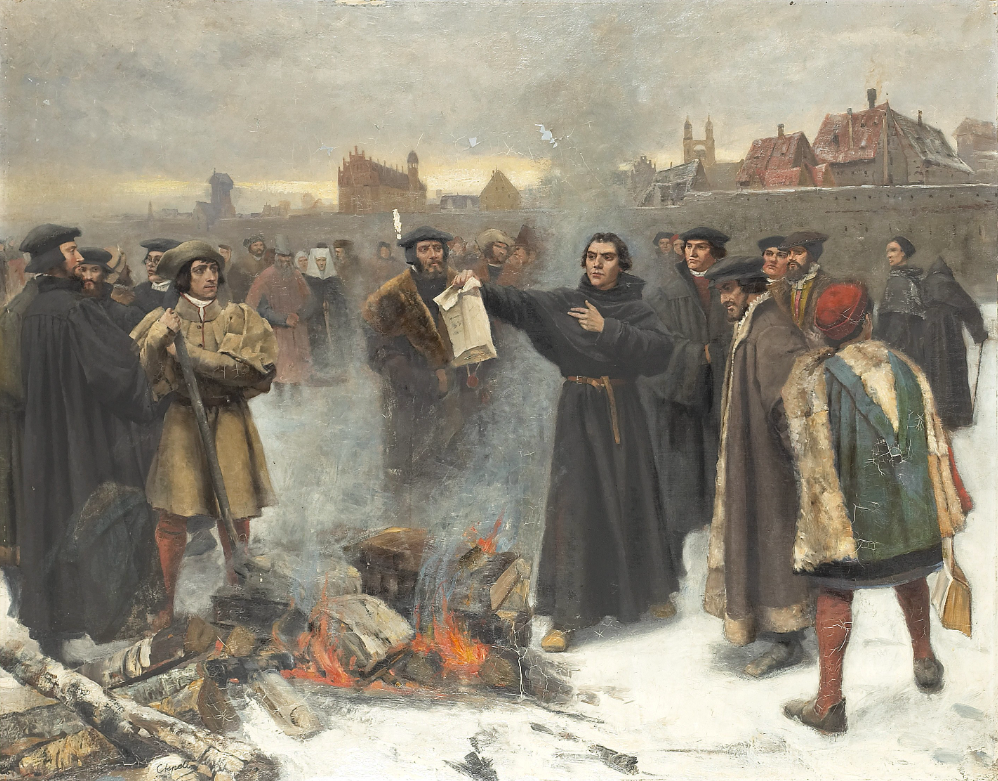
Since the inception of the Catholic Church it had slowly amalgamated into the religious monopoly of the western world’s soul (apart from the Greek/Eastern Orthodox domains). This was the state of affairs for Martin Luther as he grew up and developed into a priest and theologian in mid-Renaissance Germany.
Yet because of his extreme devotion to the doctrine of the time in regard to heavenly salvation Martin could not sit east with the plain facts of economy and politics that seemed to be deeply and perversely entangled with the prescribed process.
The story is well known: the Church seated in Rome had an elaborate scheme of various indulgences that denoted the time one spent in purgatory, heaven or hell; all based on precise calculations done by the Vatican’s finest on behalf of the laity.
Martin, in his early days as a priest, participated vigorously in these myriad rituals, as he was a deeply anguished young man. Yet, he found his internal life and relationship to God was unchanged, and often made worse, by going through these procedures even with all earnestness and excruciating attention to detail.
Conversely, he say those in society, priestly class and laity alike, who did not take these measures to heart in the least pay off great sums of money for spiritual salvation like any other transactions in the market place, without any sort of repentance. In fact he witnesses the common practice of itinerant priests with papal bulls that gave them the right to collect indulgences and share in the profit, rouse the laity into unholy terror so as to fill the coffers of Rome and their own pocket.
Martin Luther was a prodigy, deeply versed in theology and adeptly so at a young age, only 28. In addition, his passionate, bordering on neurotic personality did not allow him to complacently sit back and play armchair priest. Instead, he was concerned with his own salvation just as much as those of his students and parish.
So it was, that after several years of teaching in Wittenburg, he eventually had enough. He brought to the cathedral one day a list of 95 disagreements in doctrine he had with the current Catholic Orthodoxy. (in fact it is debated whether he even did this himself, it is just as likely that others may have nailed this famous document to the door of the cathedral and not Martin himself.).
It likely would have stayed that way. Martin never intended the document to be circled widely, let alone to the public, and indeed he did not even see it as constituting any form of direct challenge to the church. He wanted to improve the church from the inside, to reform it in a diligent and scholarly manner. But history would not have it so.
His colleagues quickly copied his theses, at first by hand and then into pamphlets via the recently invented printing press. Not only that, but his work was translated into the vulgate, not only of his native German but of the many tongues of Catholic Christendom.
These ideas caught fire, for the abuses they addressed were so prevalent, and the emotions they touched were so ready to explode. And so, the Protestant Reformation was born.
Martin’s life and the rest of world history would be irrevocably changed. If it were not for the printing press, his life may have ended up to a man quite similar to himself, one Jan Huss.
This man was a Czech priest with ideas very similar to Martin’s who was burnt at the stake some one hundred years earlier by the church. Had he been someone born in a time with a technology that could circulate his beliefs widely and garner the grass-roots support necessary to challenge the authority of the church necessary, the world Martin lived in may have been radically different.
Similarly, had Martin not had the printing press available to him, making his ideas widely available to the reading public at the time which developed into powerful supporters in Germany, he may have shared a similar fate with his predecessor.
It is by looking at the countervailing possibilities to the historical events that we can see the necessity of distributed media technology when it comes challenging power successfully.
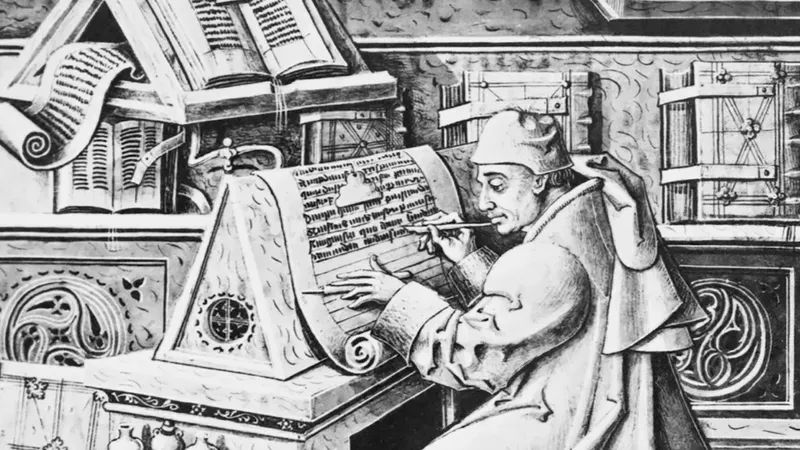
After his ideas lit the western world on fire in 1518, Martin still played the good priest for several more years, until the Diet of Worms in 1521. Here he was subjected to a coercive recantation by a bishop sent to countermand his arguments and reestablish the primacy of the church. It is critical to note the draconian vehemence with which the church demanded Martin’s recantation and to ponder why that is.
He was a man who directly called into question the authority of the pope in the temporal, political realm, the monopoly of the priesthood over Christian’s connection with god and the efficacy of indulgences in spiritual salvation.
In sum, if the questions he was raising were answered to the contrary of the contemporary doctrine, he was totally undermining the financial and political authority by which the Catholic Church ruled their lands in Italy, demanded fealty from the kings of Europe and the right by which they extracted a colossal sum of money from the population of Christendom.
So it is easy to see that Martin had poked a sore spot, and this is something that is going to be a reoccurring theme for those who would be so bold as to point out the illegitimacy of an economic model. Martin was not yet arguing these points from our modern conceptions of political liberalism, I.E. individual guaranteed rights.
Yet this is the moment where their nascent forms take shape in the modern world.
By separating and placing the primacy on the ordinary individual as the arbiter of their relationship with God, outside the priesthood and the Vatican, Martin set the stage for the modern Liberal society. Replace the church with the state and there you have it – the individual has primacy over all others to dictate the direction of their own life, precluding they do not rob the health, property and liberty of any other.
This leap forward in political-moral development would not have been possible if Martin was not able to share his ideas with the world via the technology of the printing press. The process would have been too slow, and the book burners likely would’ve burnt his books at a faster rate than they could be produced. But because his works were transferred to the format of the broadsheet pamphlet, his ideas could rapidly spread throughout all of Europe. So they did.
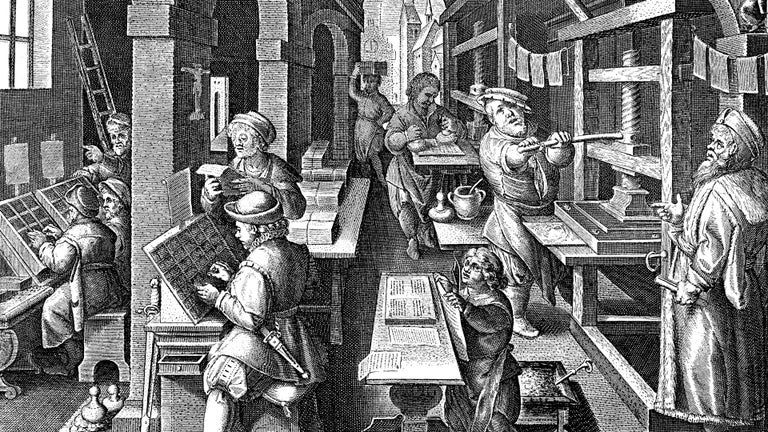
To conclude the story of Martin Luther in broad strokes, after the Diet of Worms he was excommunicated. His life was no longer his according to the Vatican, thankfully, he was supported by German princes that liked the spiritual and political (likely more so) implications of his arguments, so he was hidden in a castle after barely escaping the city of Wittenberg with hi life.
He spent long years in exile as the ideas he imparted into the world ripped apart and changed the social and political fabric of Europe. During this time he again promulgated another incredible revolution in the spiritual, moral and political development of human history – he translated the bible into vulgate.
Now, the laity would no longer be subject to the mysticism, obfuscation and manipulations of predatory teachings and priests – they could read the bible for themselves. In a world where this book constituted the sum of human knowledge and world view, this was monumental. And as we can see once again, it sets the stage for political liberalism.
Giving people the right and responsibility to find out for themselves what they believe to be true and act upon it is what Martin Luther did. First it was religious, then it became cultural, then eventually political a few hundred years later.
With the church excommunicating Martin, he doubled down on his critiques. He continued to publish further works and eventually many others joined him. This not only resulted in new sects of Christianity but also in new polities. Eventually it resulted in wars like the Peasants Revolts, the Thirty Years War and arguably most other wars in Europe until the Napoleonic age.
His ideas and the ideas he set free gestated over the ensuing centuries in the mind’s of other theologians and philosophers until political liberalism manifested in the forms we recognize today, namely in Great Britain and the United States of America.

The spiritual war he fought with the church would have been impossible if it were not for the technology of the printing press that is the nascent form of the free press so instrumental to our society today.
And so my friend, we can see in this man and his story, the foundations of the society and it’s core dynamics that we still live in today. Let us wander further down the years into the history of the press and political history, into a time of Revolutions once again.
We will begin with two men, two pamphleteers, each instrumental in fomenting two of the greatest revolutions in history, one successful, the other not. Their names are Thomas Payne and Camille Desmoullins.
One Last Thing:
The following case studies will be approached in a fairly basic manner in keeping with a primer format. They will attempt to answer the following questions, simultaneously balancing incisiveness with concision:
- What is a summary of the current political situation?
- Who is this person and how did they become a player in their time?
- What is the media technology of their choice?
- How, why and in what ways are they using it effectively?
- What were their goals in engaging in this media enterprise?
- What’re the results of their media enterprises in politics?
- Where and how did they triumph?
- Where and how did they fail?
These questions will be answered in essay form, I will provide as much supporting data possible whilst avoiding the traps of the modern academician. My intent here is in no way to be exhaustive or authoritative (there are innumerable wonderful sources to be looked to for that), it is to promulgate a basic understanding of historical patterns that facilitate curiosity in your own life and arm you with heuristics that are effective in the world.
And so, let’s dive in.
TO BE CONTINUED ...